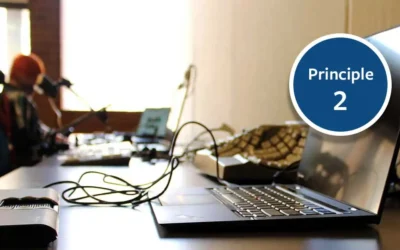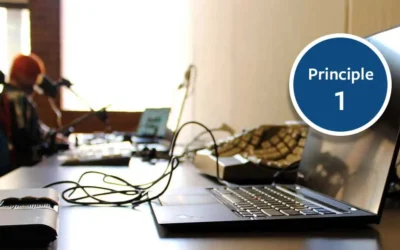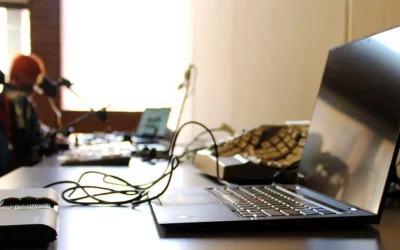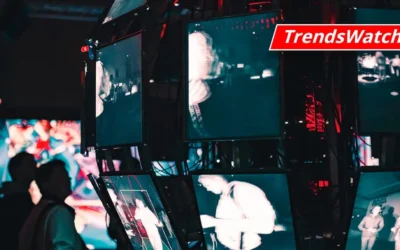Museums as Places for Democratic Dialogue and Uncomfortable Learning

Rachael Cristine Woody
A few months ago, “Women Leaders in the Arts” convened with three women leaders from the Montreal Museum of Fine Arts (Nathalie Bondil), the National Gallery of Art (Kaywin Feldman), and the Brooklyn Museum (Anne Pasternak). The discussion was moderated by Alison Stewart, host of WNYC’s “All Of It” and covered current issues for museums.
A Lack of Nuance
When asked what “What keeps you up at night?” Anne Pasternak answered, “Our contemporary moment is a culture of meanness. It’s not based on facts. It’s not based on conversation… it’s destructive to our democracy and our institutions.” All three panelists appear to agree with this sentiment, labeling the essence of the issue as a lack of nuance. One example cited was the (understandable) outrage that surrounded members of the Sackler family’s involvement in the opioid crisis and the subsequent call on museums to reject Sackler family donations. Pasternack concludes with “we’re quick to demonize people” and intimates that in this scenario the lack of nuanced conversation has impacted museums who’ve come to rely on these controversial donors for their financial survival.
Museums are Working Through Issues
Nathalie Bondil elaborates on this by sharing her experience at the Montreal Museum of Fine Arts and the accusations of cultural appropriation. In 2017, the museum displayed a Jean-Paul Gaultier headpiece inspired in its creation by a Plains Indian headdress. Bondil explained that they chose to engage in the discussion versus removing the object to avoid the issue. Instead, they invited Cree artist Kent Monkman to respond to the Gaultier item with a commissioned work.
Museums as a Space for Democratic Dialogue
Ultimately, Bondil explains “Our job is to make bridges between generations, between fields, between publics.” And continues, “[W]e might all agree about values… but we need to have a conversation with a deeper part of the population.” The panelists’ call for museums to cultivate a space for democratic dialogue echoes the American Alliance of Museums’ 2019 TrendsWatch on Truth, Trust, and Fake News. The report analyzed surveys and found that many (corporations, non-government organizations, news media, and federal agencies) suffered a dip in trust ratings while museums retain their high trust rating. In the report, Elizabeth Merritt, founding Director at the Center for the Future of Museums, encourages museums to “put [the] people’s trust to good use” by navigating the boundaries between principled and partisan in order to deliver a space for dialogue.
Museums Making Space to Work Through Issues
It’s no secret that museums have some deeply rooted issues. Museums are grappling with how they are funded, how colonialism and imperialism helped to populate their collections, and their past (and sometimes current) exclusion of diverse narratives. Many are working to address these systemic issues, but not without mistakes. As museums work to implement DEAI initiatives and address decades (if not centuries) old issues, there are going to be mistakes. Museums need to continue to adjust to the discomfort and push themselves to listen, learn, discuss, and share what their issues and mistakes are and strive to find solutions that are appropriate to our modern era.
Conclusion
If museums are encouraging our visitors to learn, critically evaluate their views, and engage in difficult conversations as a part of democratic dialogue; then so too should we. Learning is uncomfortable. When we learn new things, it challenges previously held knowledge and fully formed conceptions. It’s something we ask our visitors to do every day. Let us join them in it.

Rachael Cristine Woody
Consultant, author, and blogger Rachael Cristine Woody advises on museum strategies, collections management, grant writing and the future of museums for a wide variety of clients. Read Ms. Woody’s other blog posts and check out Lucidea’s unrivaled CMS, Argus, that empowers you to pursue your digital museum vision and make it a reality.
Similar Posts
Museum Collections Online with Accessibility Principle 2: Operable
Compliance with WCAG Version 2.1 Principle 2: Operable
Museum Collections Online with Accessibility Principle 1: Perceivable
Compliance with WCAG Version 2.1 Principle 1: Perceivable, affecting information published from museum CMS to an online portal; expert guidance
Accessibility Standards for Museum Collections Online
A museum’s compliance with the ADA Title II 2024 update has benefits for its online content and for the museum’s community of users.
Museum TrendsWatch 2024: Digital Twins and Doom Loops & Combatting the Loneliness Crisis
Digital Twins is the construction of a digital surrogate for a person, place, or thing—one of several new concepts and trends in the museum sector.




Leave a Comment
Comments are reviewed and must adhere to our comments policy.
0 Comments